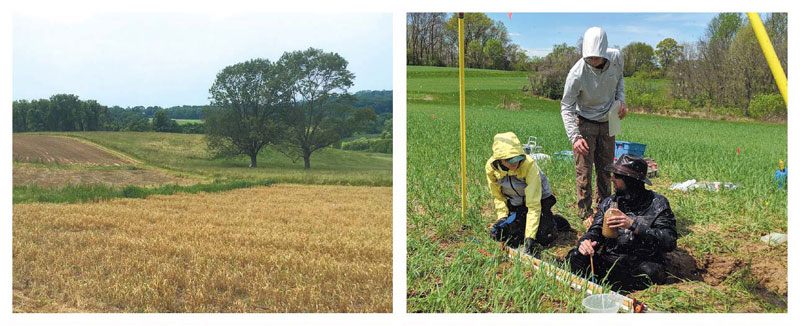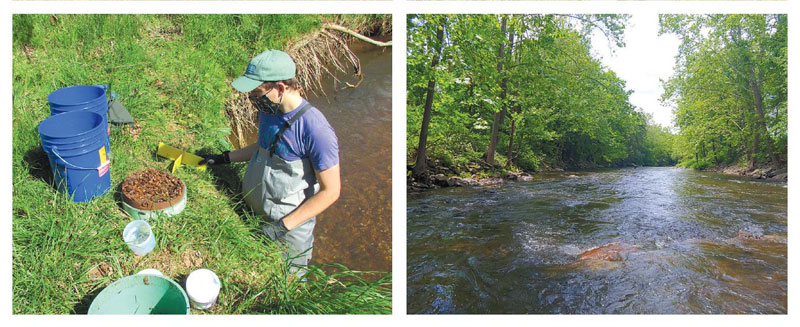A new article in Edible Philly dives into the effort to protect and restore clean water in the Delaware River watershed by working with farmers to implement best management practices on their farms. The Delaware River watershed is the drinking-water source for 15 million people and 20 percent of land draining into the Delaware River is in agriculture.
“Watershed health has improved since the Clean Water Act passed in 1972, says Lamonte Garber, watershed restoration coordinator for Stroud [Water Research Center], a leading freshwater science organization. The law addressed point-source pollution — pollution that can be tracked to a single source, such as a factory pipe or drainage ditch — that led to events like the infamous Cuyahoga River fire in 1969. Oily manufacturing debris polluting the river outside of Cleveland ignited a raging inferno on the water that rose five stories high.”
“We are talking about sewage treatment plants and factories that had pipes literally dumping raw sewage or toxic chemicals directly into streams. Now we’re left with the hard stuff: runoff from the land,” he says.
 The article highlights both the six-year Watershed Impact Trial, a partnership between the Stroud Center and the Rodale Institute, and the Delaware River Watershed Initiative (DRWI). Since 2014, the DRWI has worked with a coalition of more than 50 organizations, including the Stroud Center, to focus on forest loss, agricultural runoff, and stormwater. Both efforts have received major funding from the William Penn Foundation.
The article highlights both the six-year Watershed Impact Trial, a partnership between the Stroud Center and the Rodale Institute, and the Delaware River Watershed Initiative (DRWI). Since 2014, the DRWI has worked with a coalition of more than 50 organizations, including the Stroud Center, to focus on forest loss, agricultural runoff, and stormwater. Both efforts have received major funding from the William Penn Foundation.
Learn More
- Read the full article, “Healthy Waters: Safeguarding the Delaware Watershed.” (Don’t miss the cameo by Deirdre Flemming, former Stroud Center intern, now running water-friendly, certified organic Two Gander Farm.)
- Explore additional articles and publications about our work in the DRWI.


 By
By 

